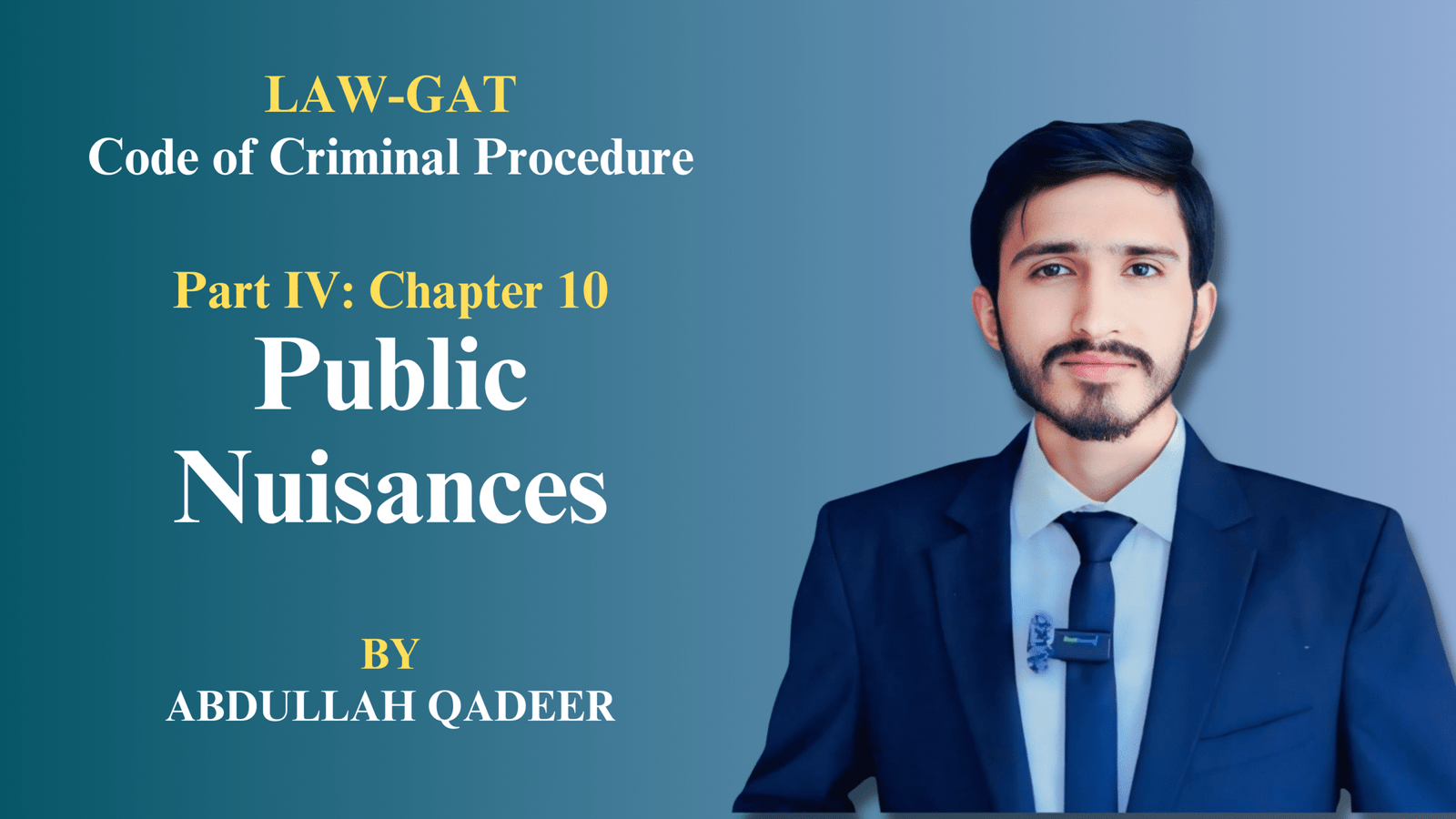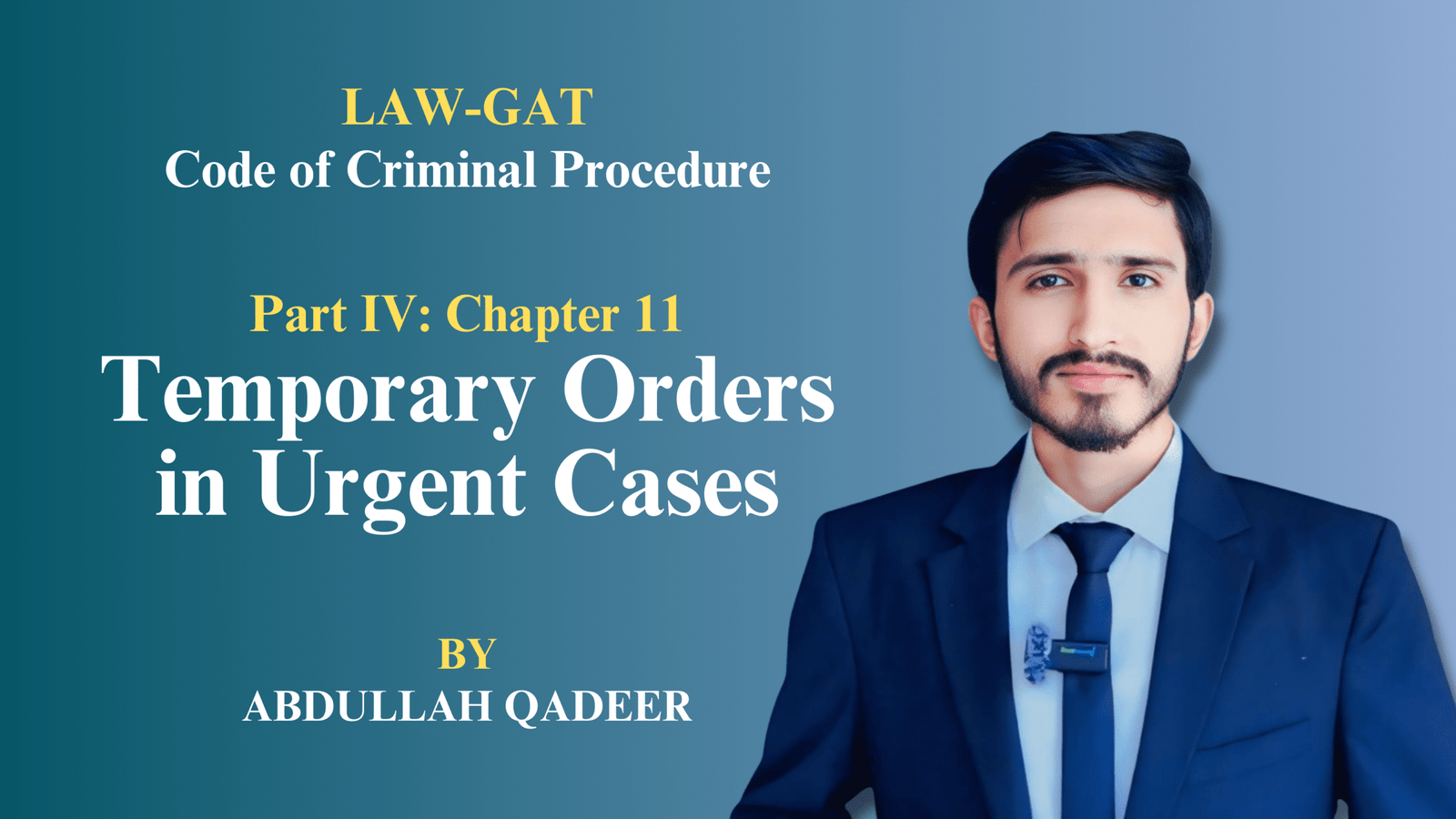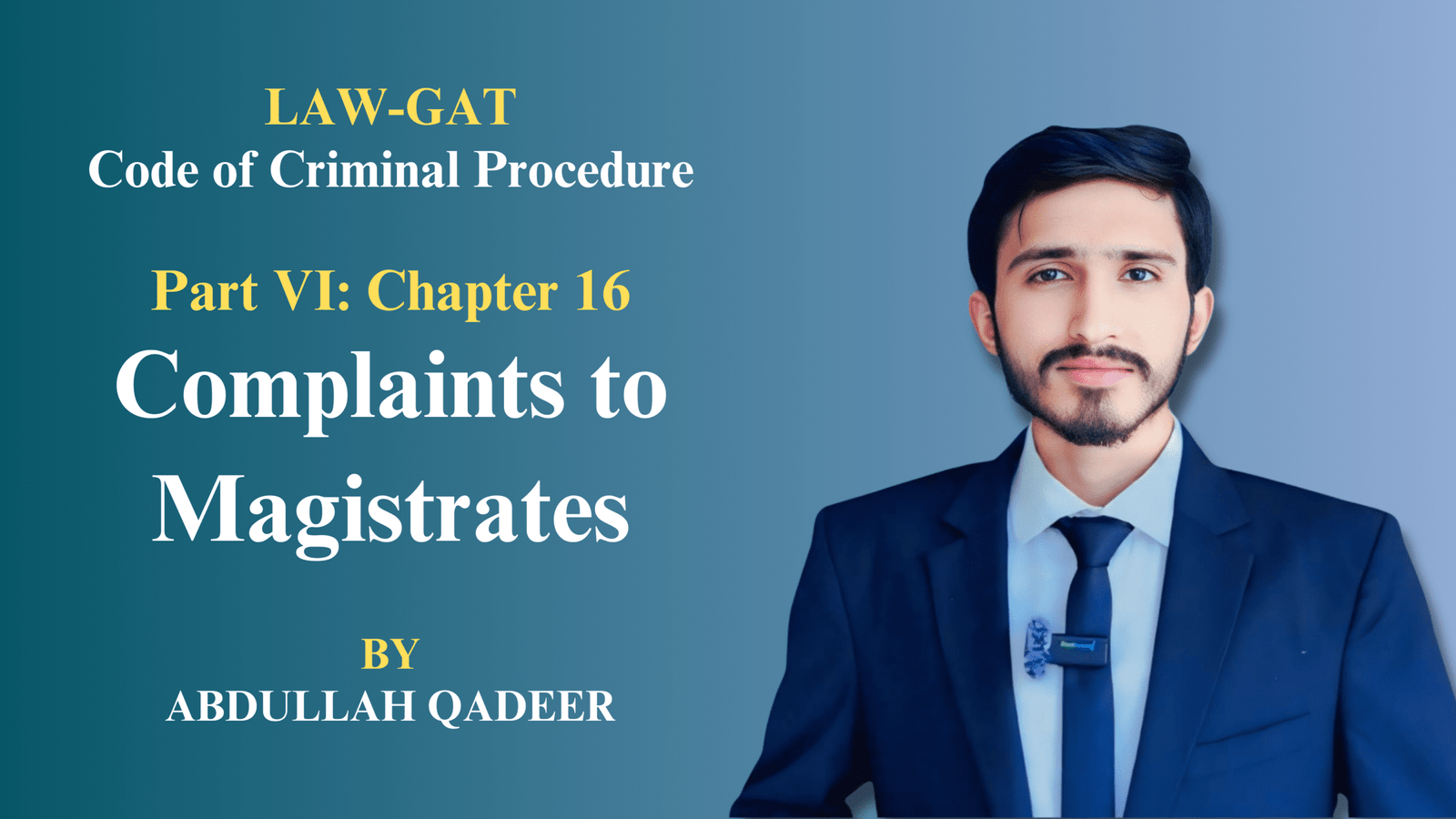CrPC Chapter 10 MCQs | LAW GAT | May 2025
Chapter 10 of the Code of Criminal Procedure, 1898, addresses public nuisances, which are actions or situations causing inconvenience or harm to the community or public at large. This chapter empowers magistrates to take prompt action to remove or prohibit nuisances, ensuring public health, safety, and convenience. It outlines procedures for issuing orders, handling objections, … Read more










